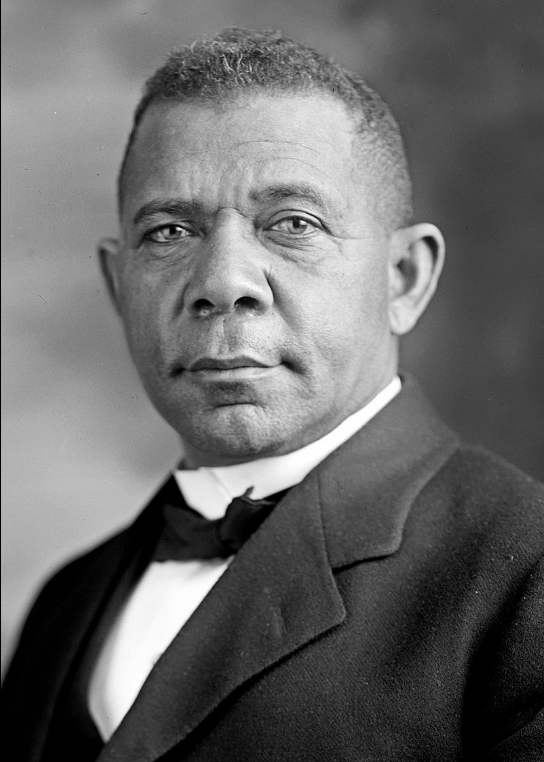Booker T. Washington, a preeminent black educator, was born into slavery on a small plantation in Virginia. He was known as simply Booker as was the custom of the day. He never knew the day, month, or year of his birth or who his father was. He was nine years old when he and his family were freed by the Emancipation Proclamation in 1865 when the area he lived in was occupied by US troops.
“As the great day drew nearer, there was more singing in the slave quarters than usual. It was bolder, had more ring, and lasted later into the night. Most of the verses of the plantation songs had some reference to freedom… Some man who seemed to be a stranger (a United States officer, I presume) made a little speech and then read a rather long paper—the Emancipation Proclamation, I think. After the reading, we were told that we were all free, and could go when and where we pleased. My mother, who was standing by my side, leaned over and kissed her children, while tears of joy ran down her cheeks. She explained to us what it all meant, that this was the day for which she had been so long praying, but fearing that she would never live to see.” Booker T. Washington.
The family moved to West Virginia to join his mother’s husband who had escaped slavery during the war. It was now that Booker began to slowly teach himself to read and go to school. It was in school that he was required to acquire a first and last name. He took his stepfather’s name Washington. He learned from his mother that at birth she had given him the name Booker Taliaferro. So he adopted Booker Taliaferro Washington as his legal name using Booker T. until his death. After the end of the war, he was working with his stepfather in the salt mines. So he woke at 4 am to study and practice his alphabet and basic words from a book his mother gave him.
He later went to work as a houseboy for the wife of a coal mine owner, Viola Ruffner. Although she was very strict, she saw promise in Booker and allowed him to go to school for an hour a day during the winter months.
In 1872 Booker T. Washington walked the 500 miles to Hampton Normal Agricultural Institute, working odd jobs along the way. He convinced the school administrators to admit him, working as a janitor to pay for his tuition. Soon the founder and headmaster General Samuel Armstrong noticed the hardworking young man and gave him a scholarship. Before long General Armstrong became Booker’s mentor further instilling in his principles of hard work and strong moral character.
Booker T. Washington graduated in 1875. He taught at his old grade school for a short time. He attended Wayland Seminary for six months in Washington D.C. He went to Hampton to give a graduation speech whereupon General Armstrong offered him a job.
In 1881, the Alabama legislature approved a grant of $2,000 to start the Tuskegee Normal and Industrial Institute (which is now known as Tuskegee University). General Armstrong was asked to recommend a white man to run the school. He recommended Booker T. Washington. Classes were initially held in an old church. Booker traveled the countryside fundraising and promoting the school. Under Booker T. Washington’s leadership, Tuskegee University became one of the country’s leading schools.
Booker T. Washington imbued the school with his belief in patience, enterprise, and thrift. He believed that economic success and cultural advancement would take time but would bring with it respect from the white community. This would eventually result in full political and economic rights for the black community. It was a very controversial position on race relations that he put forth in the speech known as the “Atlanta Compromise.”
Booker T. Washington was invited to the White House in 1901 by President Theodore Roosevelt as an advisor on racial matters. His successor President William Howard Taft also used Booker as an advisor. In 1900, Booker T. Washington founded the National Negro Business League. At this time he also published his autobiography Up from Slavery. These events brought him fame and much-heated debate surrounding his philosophy on race. He also financed several civil rights court cases challenging segregation for blacks.
He was at the helm of the Tuskegee Institute until his death in 1915. Booker T. Washington was a Republican.




